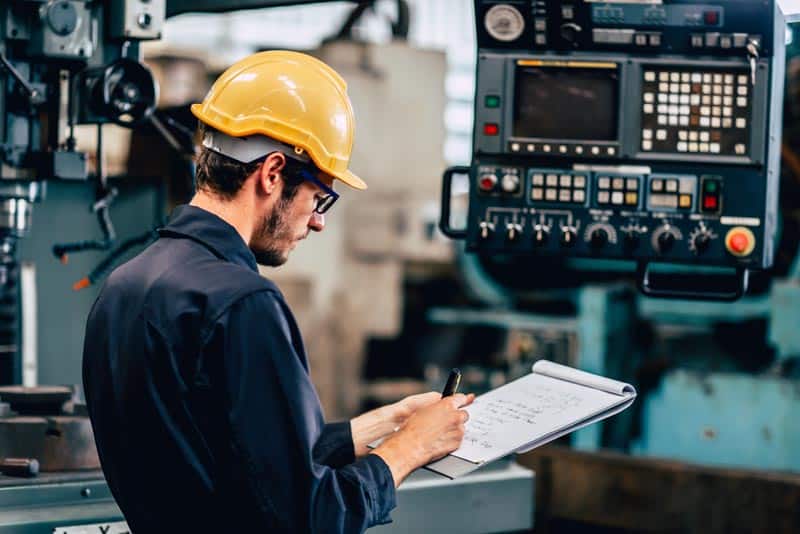What Does a Machine Operator Do?
Machine operators are responsible for operating and maintaining machinery used in manufacturing and production processes. They work in various industries, such as construction, manufacturing, and transportation. Their primary job is to ensure that the machines operate efficiently and effectively to produce quality products.
Roles and Responsibilities of a Machine Operator
A machine operator’s role involves several responsibilities, which include:
- Operating machines and equipment to produce quality products efficiently
- Performing routine maintenance and cleaning of machines to ensure optimal performance
- Monitoring machines during operation to detect malfunctions and rectify them immediately
- Reading and interpreting blueprints, schematics, and diagrams to understand machine specifications
- Adjusting machine settings to ensure that products meet quality standards
- Ensuring that the machines operate in compliance with safety regulations and guidelines
- Maintaining accurate production records and reporting any issues to the supervisor
Skills Required to Become a Machine Operator
To become a machine operator, an individual needs to possess several skills, including:
- Technical knowledge and understanding of machinery and equipment
- Attention to detail to identify and rectify machine malfunctions
- Mechanical aptitude to operate and maintain machinery effectively
- Physical stamina to stand for extended periods and lift heavy objects
- Good communication skills to work effectively in a team environment
- Problem-solving skills to identify and resolve production-related issues
Training and Education Requirements for Machine Operators
 Machine operators can receive training through various means, such as on-the-job training, apprenticeships, or vocational schools. The education requirements vary depending on the industry and the complexity of the machines they operate. However, most machine operators have a high school diploma or equivalent qualification.
Machine operators can receive training through various means, such as on-the-job training, apprenticeships, or vocational schools. The education requirements vary depending on the industry and the complexity of the machines they operate. However, most machine operators have a high school diploma or equivalent qualification.
Career Growth and Advancement Opportunities for Machine Operators
Machine operators can advance their careers by gaining experience and acquiring additional skills. They can become team leaders, supervisors, or managers in production facilities. Additionally, some machine operators may choose to specialize in a particular type of machinery or industry, such as construction or transportation.
Conclusion
In summary, machine operators play a critical role in ensuring the efficient and effective operation of machinery used in production processes. They possess technical knowledge, mechanical aptitude, and problem-solving skills, among other skills. With appropriate training and experience, they can advance their careers and become supervisors, managers, or specialists in specific industries.









